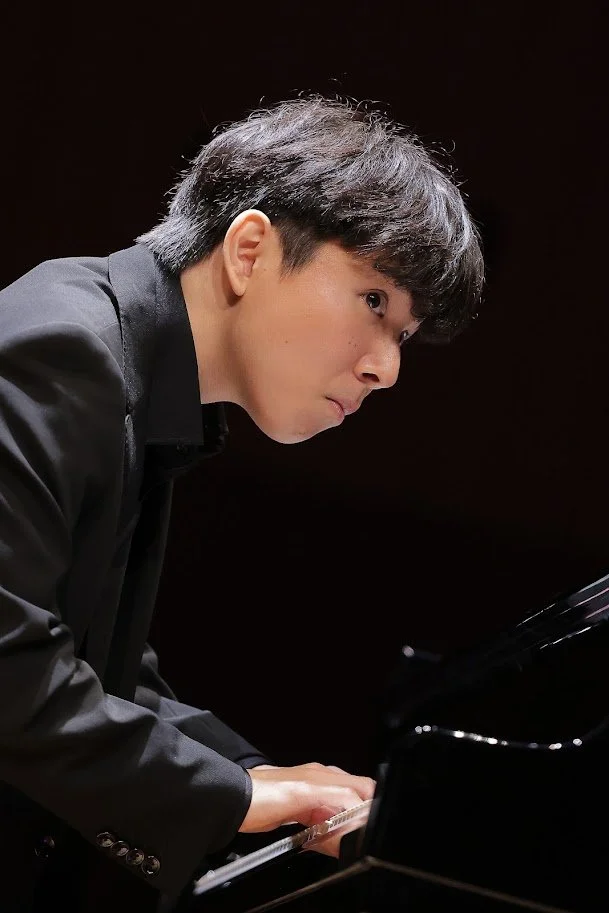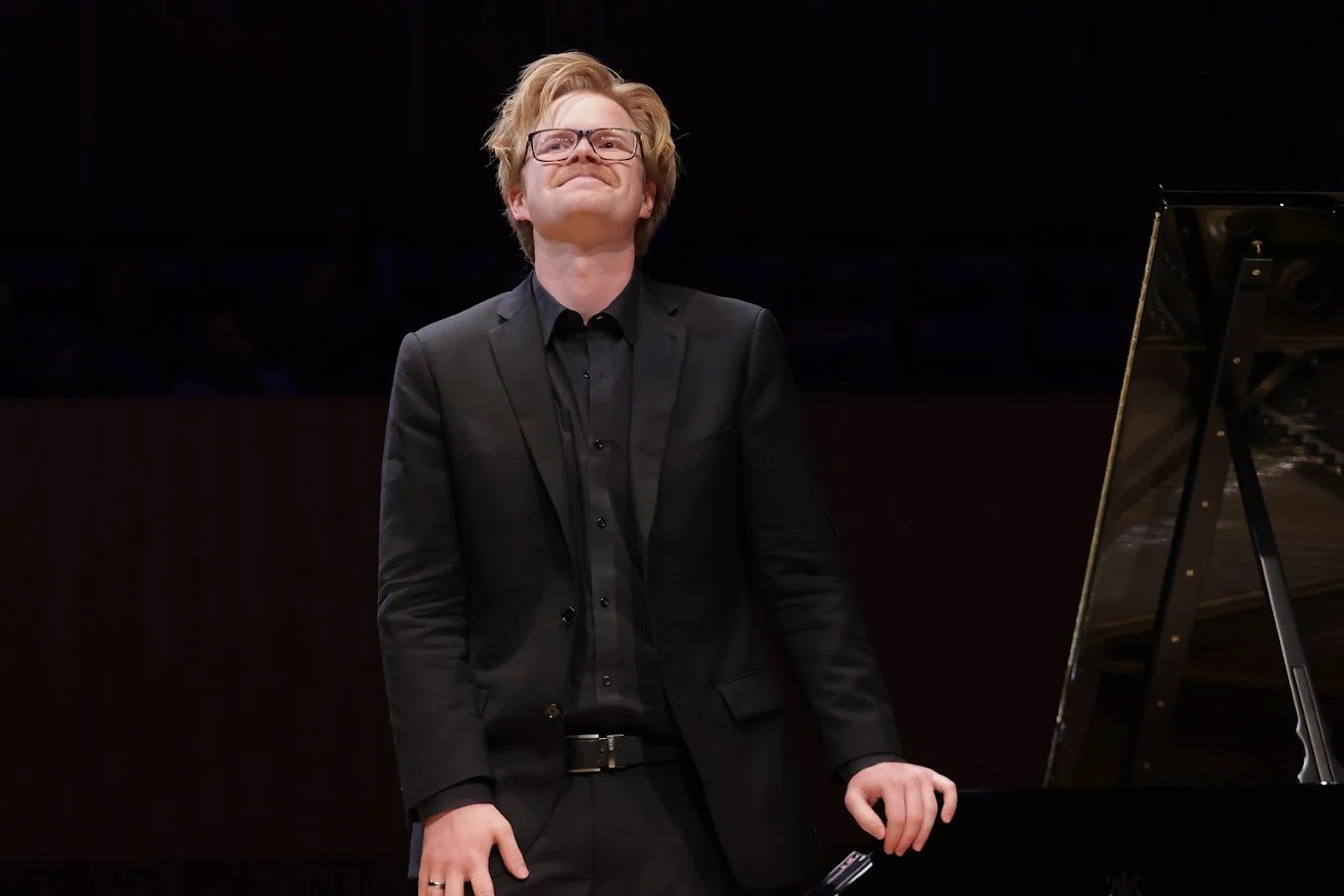Preliminary Recital 2
Photos by Ralph Lauer
—Wayne Lee Gay
May 21, 2025: The 26-year-old Japanese pianist Ryota Yamazaki began his preliminary round program—and the Wednesday afternoon session—with Busoni's piano transcription of J.S. Bach's organ chorale prelude "Nun komm, der Heiden Heiland" ("Come, Savior of Nations"). Yamazaki successfully uncovered the pianistic color and austere lyricism of Busoni's setting. In Mozart's Sonata No. 18 in D, he created a sense of vivid energy in the first movement, then opened the Adagio middle movement with a striking pastel tone which he gradually broadened dramatically. Yamazaki followed with a solid reading of Montero's "Rachtime" before turning to his brilliant rendition of Liszt's Reminiscences de Norma as a closing offering. Breathtaking trills opened this note-packed showpiece (inspired by tunes from Bellini's opera Norma), followed by equally impressive technical fireworks.
Italian Federico Gad Crema, 26, opened with a pair of Scarlatti sonatas; a light touch and romanticized approach seemed not quite right in the Sonata in A (K. 208), but made a little more sense in the Sonata in G (K. 146). Chopin's music has been a mainstay of Cliburn competitions in the past, but it was well into the second session of the day before Crema introduced Chopin with the Polonaise-Fantasie in A-flat, Opus 61. Crema's approach was unfortunately low on energy and far off target. He was oddly unimaginative in the three movements of Debussy's Images (Book I), low on contrast and anemic in mood—and he found little of American popular music or Rachmaninoff in a generally dull rendition of Montero's "Rachtime."
Representing both Canada and the United States, competitor Carter Johnson, 28, completely skipped the romantic era in his preliminary round performance, presenting an intriguing exploration of works of J. S. Bach, Clementi, and Prokofiev, along with the required Montero "Ragtime." His rendition of Bach's Capriccio "On the Departure of a Beloved Brother" was a lesson in meaningful interpretation of Bach on the modern piano: sturdy, precise, and energetic, but never over-romanticized or burdened with misplaced imitation of harpsichord music. He produced convincing momentum while uncovering the melodies lurking in the sea of notes in the Montero work (playing from a digital score); in Clementi's two-movement Sonata in F-sharp minor (Opus 25, no. 5), Johnson presented a beautifully crystalline, light but intense tone. A set of five short pieces from Prokofiev ranged from muscular to spooky, closing with the delightfully dissonant—and aptly titled—Suggestion diabolique.
David Khrikuli, 24, from the Republic of Georgia, leaned toward a darker repertoire, opening with a set of works of Scriabin, including two Preludes from Opus 10, "Guirlandes" ("Garlands") from Opus 73, and the Sonata No. 7 ("White Mass"), successfully capturing that composer's wide-ranging, often elusive moods, from dreamy to stormy. Khrikuli likewise sought out the frequent darkness under the light-hearted surface of Ravel's Valses nobles et sentimentales, with convincing attention to the possibilities for contrast in this work. That same very deliberate underlining of contrasts produced the most thrilling version of Montero's "Rachtime" up to that point; twentieth-century pianist Vladimir Horowitz's enhanced edition of Liszt's Hungarian Rhapsody afforded a strong finale, and confirmation of Khrikuli as a keyboard virtuoso of the first rank.



